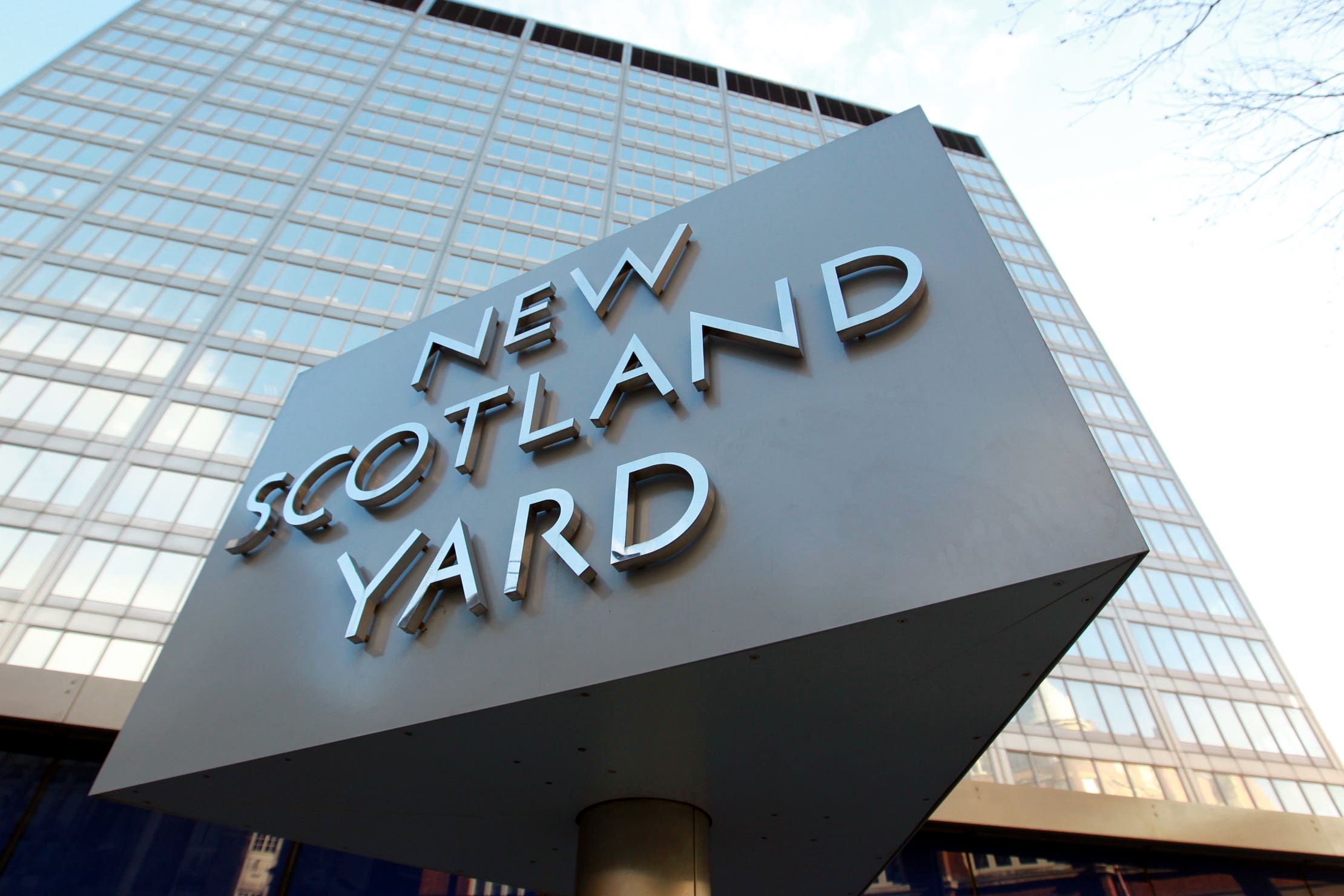Undercover officer guilty of gross misconduct over relationship with activist
Former Metropolitan Police detective constable James Boyling, of the Special Demonstration Squad, had a sexual relationship with the woman in 1997.

Your support helps us to tell the story
From reproductive rights to climate change to Big Tech, The Independent is on the ground when the story is developing. Whether it's investigating the financials of Elon Musk's pro-Trump PAC or producing our latest documentary, 'The A Word', which shines a light on the American women fighting for reproductive rights, we know how important it is to parse out the facts from the messaging.
At such a critical moment in US history, we need reporters on the ground. Your donation allows us to keep sending journalists to speak to both sides of the story.
The Independent is trusted by Americans across the entire political spectrum. And unlike many other quality news outlets, we choose not to lock Americans out of our reporting and analysis with paywalls. We believe quality journalism should be available to everyone, paid for by those who can afford it.
Your support makes all the difference.A former Metropolitan Police officer who had a sexual relationship with a woman he was spying on in a secretive undercover unit has been found guilty of gross misconduct.
Former detective constable James Boyling, of the Met’s Special Demonstration Squad (SDS), had a sexual relationship with the woman, known only as Monica, for six months in 1997 while infiltrating the environmental activist group Reclaim the Streets.
He later married another female activist, who exposed his true identity in a 2011 article for The Guardian.
The officer, who used the pseudonym Jim Sutton, was sacked for gross misconduct over his relationship with his now ex-wife in 2018, but faced new misconduct proceedings over his relationship with Monica.
A disciplinary panel in Southwark, south London, was told on Monday that his relationship with Monica began when they kissed outside a pub after a ‘Never Mind the Ballots’ activist event and later went to his undercover ‘duff’ flat in Dulwich, south-east London.
If you have no other option but to become involved with (an activist), you should have fleeting, disastrous relationships with individuals who are not important to your sources of information
They were “definitely known as a couple” and attended Glastonbury and an Earth First gathering together, the tribunal was told.
Monica was left feeling “duped, misunderstood and ridiculed” and with a “feeling of sexual abuse” after Boyling’s true identity was revealed in The Guardian article, the panel heard.
He did not report the relationship to managers despite the fact they were supposed to meet twice a week, the hearing was told.
The hearing was also told his line manager, a detective inspector known as N10, had four such relationships while working undercover between 1983 and 1987 and got one activist pregnant.
Another officer, named as N11, also had sexual relationships with female activists and resumed his undercover identity without authorisation, the tribunal heard.
Sexual relationships with activists were not explicitly banned because refusing sexual advances could blow their cover, but undercover officers were advised to make them “fleeting” and “disastrous”.
Guidance read out to the tribunal said: “In the past, emotional ties to the opposition have happened and caused all sorts of difficulties, including divorce, deception and disciplinary charges.
“Whilst it is not my place to moralise, one should try and avoid the opposite sex for as long as possible.
We are of the view that entering a sexual or emotional relationship under a false identity cannot ever have a proper policing purpose
“While you may try to avoid any sexual encounter, there may come a time when your lack of interest may become suspicious.
“If you have no other option but to become involved with (an activist), you should have fleeting, disastrous relationships with individuals who are not important to your sources of information.”
SDS bosses preferred undercover officers to have a stable family life but Boyling got divorced shortly before infiltrating Reclaim the Streets.
Boyling, who did not attend the hearing, was found guilty of breaching professional standards for integrity and discreditable conduct.
Standards for authority, respect and courtesy, which he was also accused of breaching, were not found to have applied at the time.
He admitted the relationship but denied his actions amounted to gross misconduct.
He unsuccessfully tried to get the case dismissed at an earlier stage.
His lawyer Alisdair Williamson KC argued the rules on relationships were “blurred” and liaisons were “an acceptable and accepted part of the legend and cover”.
If there was a belief it was beneficial to the investigation it should have been reported back
Tribunal panel chairman Darren Snow said Met guidance on relationships was “poor, inadequate and negligent’ but gross misconduct still occurred.
He said: “The panel’s conclusion is that the guidance was that, if forced into a relationship where there was no other option, it should be fleeting and disastrous.
“The relationship with Monica was neither. The fact it was not reported undermines the suggestion it was focused on intelligence.
“If there was a belief it was beneficial to the investigation it should have been reported back.
“We are of the view that entering a sexual or emotional relationship under a false identity cannot ever have a proper policing purpose.”
Monica, who initially complained about Boyling in February 2018, failed to bring criminal charges against him in December 2018.
The High Court rejected her appeal against a decision by the Crown Prosecution Service not to prosecute him for rape and misconduct in public office.
The SDS existed between 1968 and 2008 and its actions are subject to a lengthy public inquiry.
A decision on whether Boyling would have been sacked if he was still an officer will be handed down later on Friday.